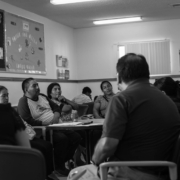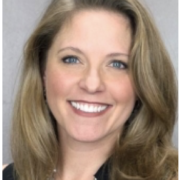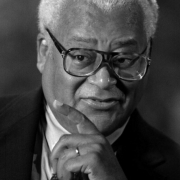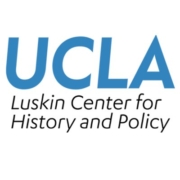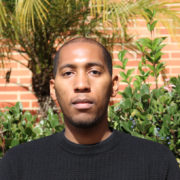By Lara Drasin
UCLA’s new Master of Social Science (MaSS) degree may seem to have materialized one summer day in 2016 as a sudden addition to the university’s already-robust social science graduate degree offerings, but this state-of-the-art program was actually a labor of love many years in the making.
The MaSS program, which welcomed its first cohort of students to campus in Fall 2017, first was envisioned by former Dean of Social Sciences Dr. Alessandro Duranti, who convened a faculty steering committee, led by Social Science Interdepartmental Program Chair, Dr. Juliet Williams, to explore the idea. Dr. Williams worked closely with Director of Academic Programs for the Social Sciences Dr. Tamar Kremer-Sadlik, who now serves as MaSS Academic Director, and with a team of divisional faculty, to develop a one-of-a-kind program for students interested in research-oriented careers. To lay the groundwork for graduates’ success after the degree, Drs. Williams and Kremer-Sadlik interviewed prominent leaders in the business and NGO sectors, conducted focus groups with alumni from the social sciences, and even developed a professional advisory board to make sure that the skill sets they planned to cultivate in students would translate to the job market – and make graduates of the program more attractive to PhD programs, should they choose that route.
“We wanted people who want to enter the workforce but are lacking some skills,” said Kremer-Sadlik, citing feedback she had received from businesses that they were looking for candidates with better critical thinking, reading, writing and data research skills, as well as an ability to think creatively, be flexible and work well in teams. She also reinforced that the program is for “people who are thinking that they want to go do a PhD but need either to prepare better or really think it through with better tools.”
As part of the three-quarter-long program, students take newly designed courses in qualitative and quantitative methods for social research, two electives, and a course introducing them to different theoretical frameworks used in the social sciences. MaSS students also benefit from class visits by members of UCLA’s world-class faculty.
“It was an amazing experience to hear about their work and then allow time for an in-depth question and answer session after each one,” said current MaSS student Jill Giardino, about faculty class visits. “This was for the MaSS program only so it was a very intimate setting – we learned a lot about topics such as cultural politics in LA, the model minority myth of Asian Americans, diversity in Hollywood and the first-ever study of day laborers.”
But what’s especially unique about the program’s curriculum is its focus on application: teaching students how to use their newfound social science skills to understand and think about potential solutions to larger, more systemic social problems.
“The MaSS program,” says Dean of Social Sciences Dr. Darnell Hunt, “exemplifies the UCLA Division of Social Science’s commitment to empowering students to put social science knowledge to work in addressing challenges and engaging communities.”
The program culminates in each student’s completion of a Major Research Paper (often referred to as the “MRP”), which is an empirical analysis of a pre-existing data set that is relevant to each student’s research question. Research questions are based on student research interests and developed under the guidance of faculty instructors. Each student is also paired with a “faculty reader” – a UCLA faculty member whose research interests line up with the topic of the student’s MRP.
There are 20 students in the inaugural year of the MaSS program, all with diverse research interests and from as far as Brazil, China and Singapore. “I truly appreciate all of the intelligent and diverse characters that have gathered to pioneer this program,” said Sarah Gavish, another member of the current MaSS cohort. “There is never a class without laughter.”
Students are encouraged to take individual approaches to their MRP, employing both quantitative and qualitative and, in some cases, mixed methods approaches. Current student projects explore a broad range of topics, including: factors that influence the acceptance of corruption in Brazil; motivation for voting in authoritarian elections; internet censorship and digital activism; cross-cultural analyses of military leadership; Asian American pan-ethnic identity; race and gender-based inequality in subprime lending; and media studies on documentary film, tween television programming and the relationship between television news and fear.
“The MaSS program solidified for me that I was passionate about doing research,” said Monica Lee, another current student. “I also find that even though I came into the program with no prior research experience, I now feel confident in my ability to be able to conduct research that can have a meaningful impact in policy and on society.”
A commencement ceremony for the inaugural class of MaSS graduates will be held on June 15th, 2018 at the Fowler Museum.
For more information on the MaSS program, visit http://mass.ss.ucla.edu/.

